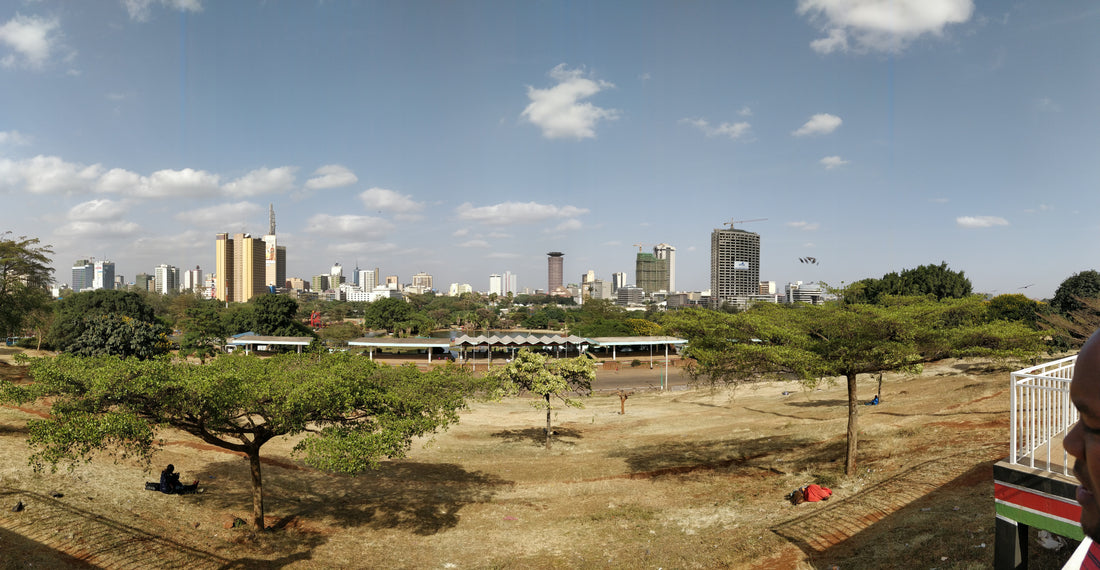In the body of the text for our first Kenyan coffee release (Kieni AB), we told the typical rosy story about Kenyan coffee & it’s unique character. But there is a fly in the ointment - the colonial history in Kenya, and the systems left in the wake have caused some problematic issues that have recently come to a head. The information below is our summary understanding of the claims, both from Kenyan media as well as some excellent posts by Christopher Feran [1][2]
As roasters, we have some hard questions to ask ourselves about how we’ll look to source Kenyan coffees, and from whom - this year we missed the pre-shipment period, and so bought 2 x 60kg sacks on spot (available in the UK), looking for the best final taste in the cup. We’re looking forward to a more considered sourcing strategy for 2024 taking into account the latest developments.
A severely abridged summary of the crisis:
Exploiting an export system in Kenya that carries the echoes of its colonial past, multinational companies (as well as unscrupulous local companies & officials) have allegedly formed “price fixing cartels” that control much of the growing, milling, and marketing of coffee in Kenya. Vertical integration in a system that was designed to prevent it has disproportionately affected smallholder farmers; by manipulating prices and grades through regulatory abuse and anti-competitive behaviour, under the cover of the opacity in the mandated auction system.
The cartels have been accused of downgrading quality, underpaying farmers, dishonest accounting and pocketing profits that should go to growers.
Recently, the Kenyan government took the drastic step of suspending buyer licences, directly naming the companies alleged to be involved. This abrupt and unplanned suspension (a complete shut-down of the Nairobi coffee exchange, which is the government mandated export mechanism) lasted four weeks and left farmers unable to sell their crops. Unsold coffee sitting as parchment is both a security risk (representing a lucrative target for thieves) and cash-flow disaster for a farmer, especially as harvest time is one of the most resource intensive periods.
This disruption has exacerbated the ongoing decline in Kenya's coffee production, with current levels dwindling to just 30% from the peak seen in the 1980s. Property development (especially the spread of Nairobi's urban sprawl) combined with continual poor profits from coffee have seen many farmers sell up, not always by choice.
The new government has articulated its intentions to reform the sector, with a focus on enhancing traceability and empowering cooperatives while challenging the alleged cartels. However, these noble aims may encounter resistance from entrenched interests, particularly when such reforms threaten personal gain and influence. While officials profess a desire to enhance traceability from crop to cup and ensure farmers receive their fair share of profits, substantial political and economic obstacles stand in the way of meaningful change.
We are committed to conducting thorough research to identify the most responsible way to engage with the Kenyan coffee market. Our goal will always be to offer exceptional coffees we love without compromising our values. It is worth saying, that there is far more corruption involved with international trading with the developed world than often would be happily admitted in a piece of coffee copy.
It's neither the exception nor the rule - but merely an unpleasant background part of the picture, so often swept under the rug. It is a rare society indeed where a briefcase of dollars will not get an official to look the other way - after all, we don't have to look far to see the same sort of scandals play out in the western world, much as we might dress it up with nicer words. Lobbying or Baksheesh, pick your poison, it remains a constant part of the human system.
With that in mind, we will always look to do better, using our buying power (small scope though it may be) as an opportunity to “vote with our wallet” for a better and more equitable system.

